In recent years, service dogs have played a growing role in autism care. These dogs aren’t just trained helpers—they’re bridges between moments of anxiety and calm, unpredictability and routine.
According to the CDC, 1 in 31 children in the U.S. is diagnosed with autism spectrum disorder (ASD). That number reflects not just children—it reflects families, emotions, challenges, and the ongoing need for support.
Certain breeds have the instincts and temperament that make them especially reliable for people with autism. The right dog senses discomfort, offers grounding, and provides reassurance through touch, presence, and loyalty.
In this article, we’ll explore dog breeds that naturally align with autism support work. From large, steady protectors to gentle, quiet companions, these breeds are known for their intuitive connection, patience, and sensitivity.
Service Dog Breeds for Autism
1. Golden Retriever
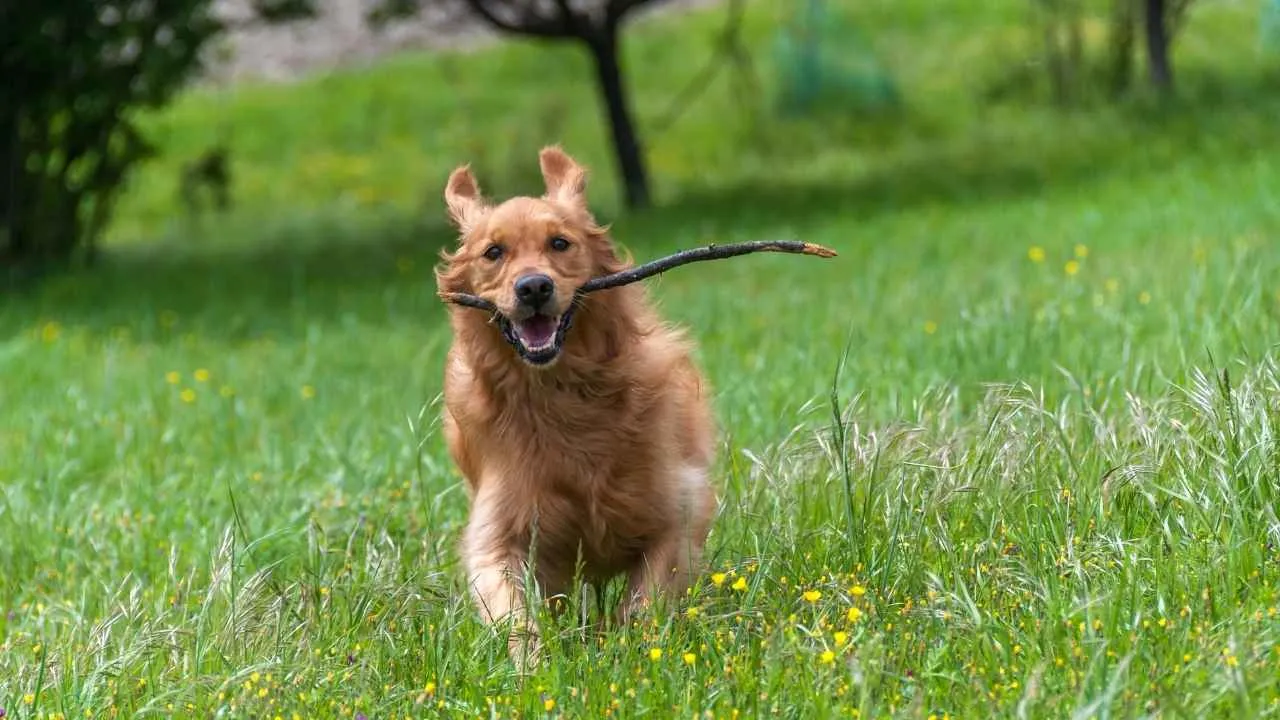
Golden Retrievers naturally exhibit a calm and composed energy, which helps lower stress levels in unfamiliar environments. Their steady presence often creates emotional security during daily routines. They are especially valued for their consistent reactions to unexpected changes.
Highly Observant and Intuitive
These dogs are quick to notice subtle emotional shifts in people they spend time with. They can respond to moments of distress without needing verbal prompts. This intuitive behavior is often key when working with an autistic child who may not express needs conventionally.

Eager to Follow and Please
Golden Retrievers are highly receptive to instruction and show strong retention of structured commands. They stay close to their handler and mirror their movement without needing repeated redirection. This reliability allows them to support both indoor routines and public transitions.
Known for Their Role in Support Programs
Golden Retrievers are among the most commonly trained therapy dogs across multiple programs worldwide, as PetMD documented. Their behavioral predictability and patience make them one of the most trusted breeds in long-term autism support. Trainers often rank them high for both performance and adaptability.
2. Labrador Retriever
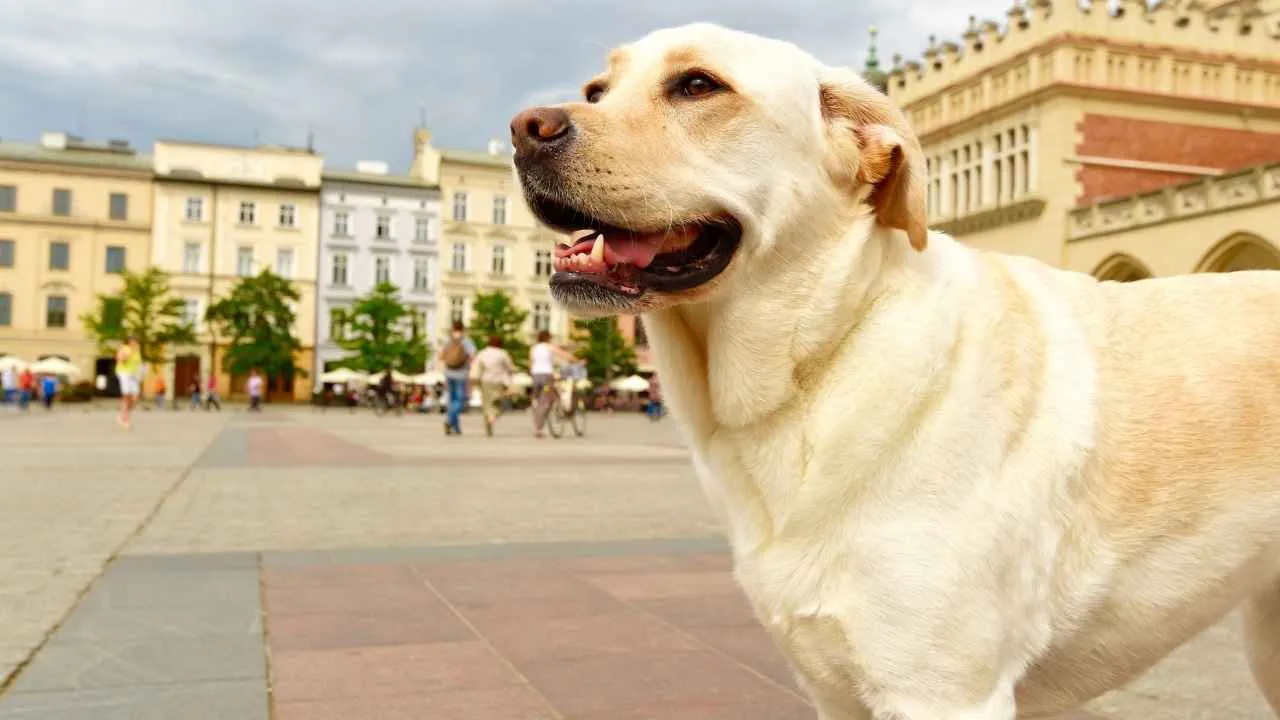
Labradors have a steady behavioral rhythm, which helps create a structured environment for those who rely on consistency. They respond to routine cues without hesitation, making them dependable in daily transitions. Their body language stays readable even in crowded or noisy areas.
Naturally Cooperative and Reinforcement-Friendly
This breed has a strong willingness to follow commands and adapt to handler preferences over time. They perform well with positive reinforcement and rarely require corrective measures. This makes them easier to manage even in emotionally complex scenarios.
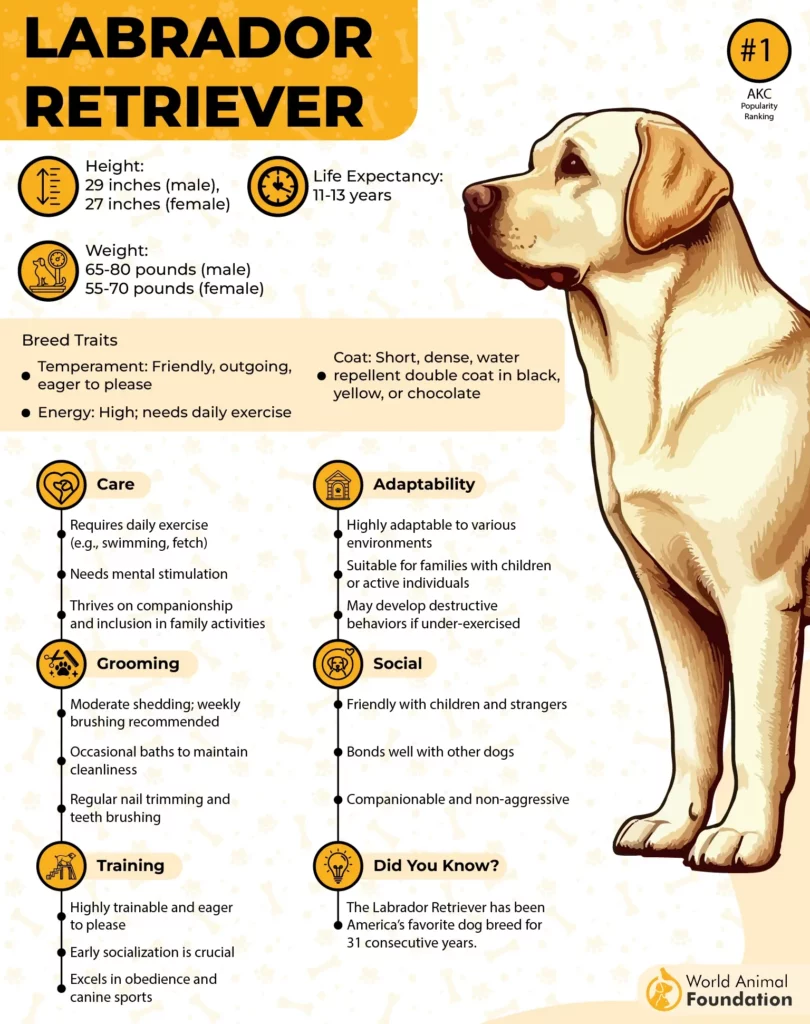
Emotionally Grounded and Supportive
Labradors are frequently used for emotional support due to their sensitivity to human mood changes, as per NSAR. Their ability to sit patiently during meltdowns or overstimulation is a key strength. This calm temperament provides silent reassurance without overstimulating the child.
Widely Trusted in Service Roles
They’re among the most reliable companion dogs for individuals with autism because of their multitasking abilities. Labs are often trained to perform multiple tasks — from tethering to tracking — with accuracy. In structured environments, their support often feels second nature.
3. Standard Poodle
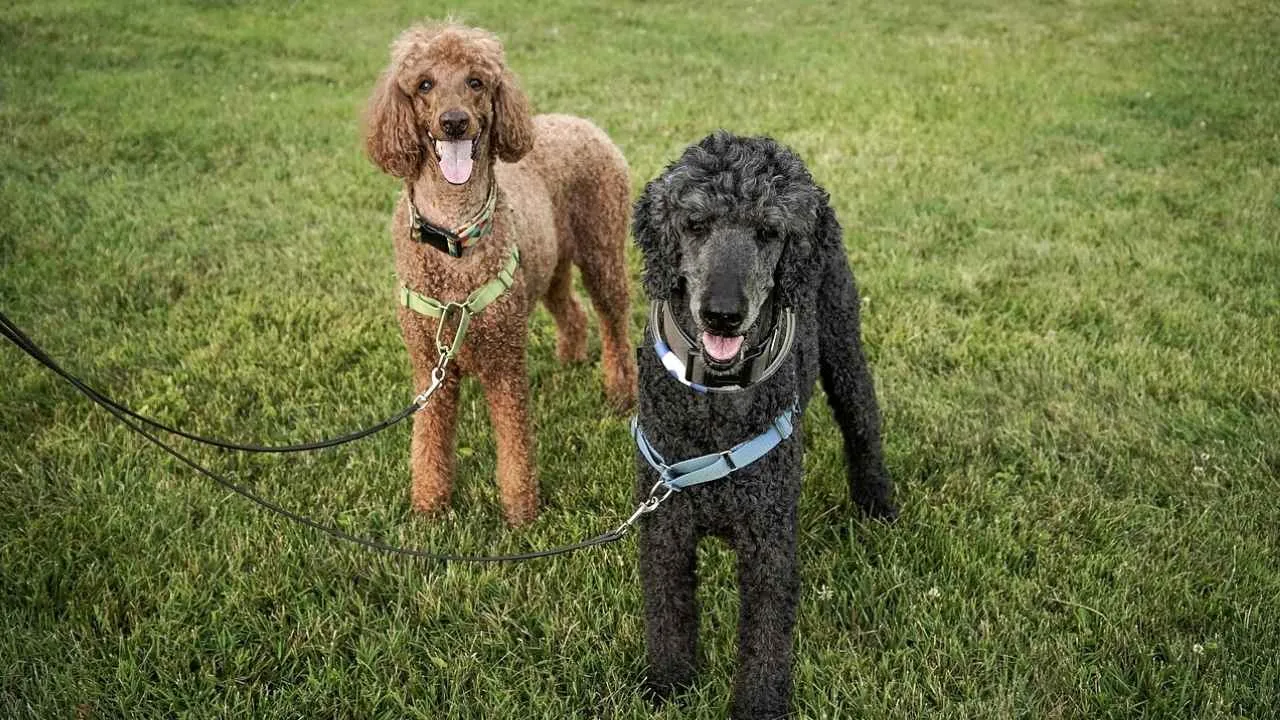
Standard Poodles are known for their quick decision-making and excellent command retention. They consistently perform well in structured environments requiring daily cues. These traits make them one of the most cooperative breeds during service dog training.
Adaptable to Sensory-Sensitive Spaces
They adjust comfortably to quiet homes, public spaces, and transitions without overreacting. Their ability to stay focused even in slightly noisy environments benefits both children and caregivers. This helps reduce overstimulation risks during unpredictable moments.
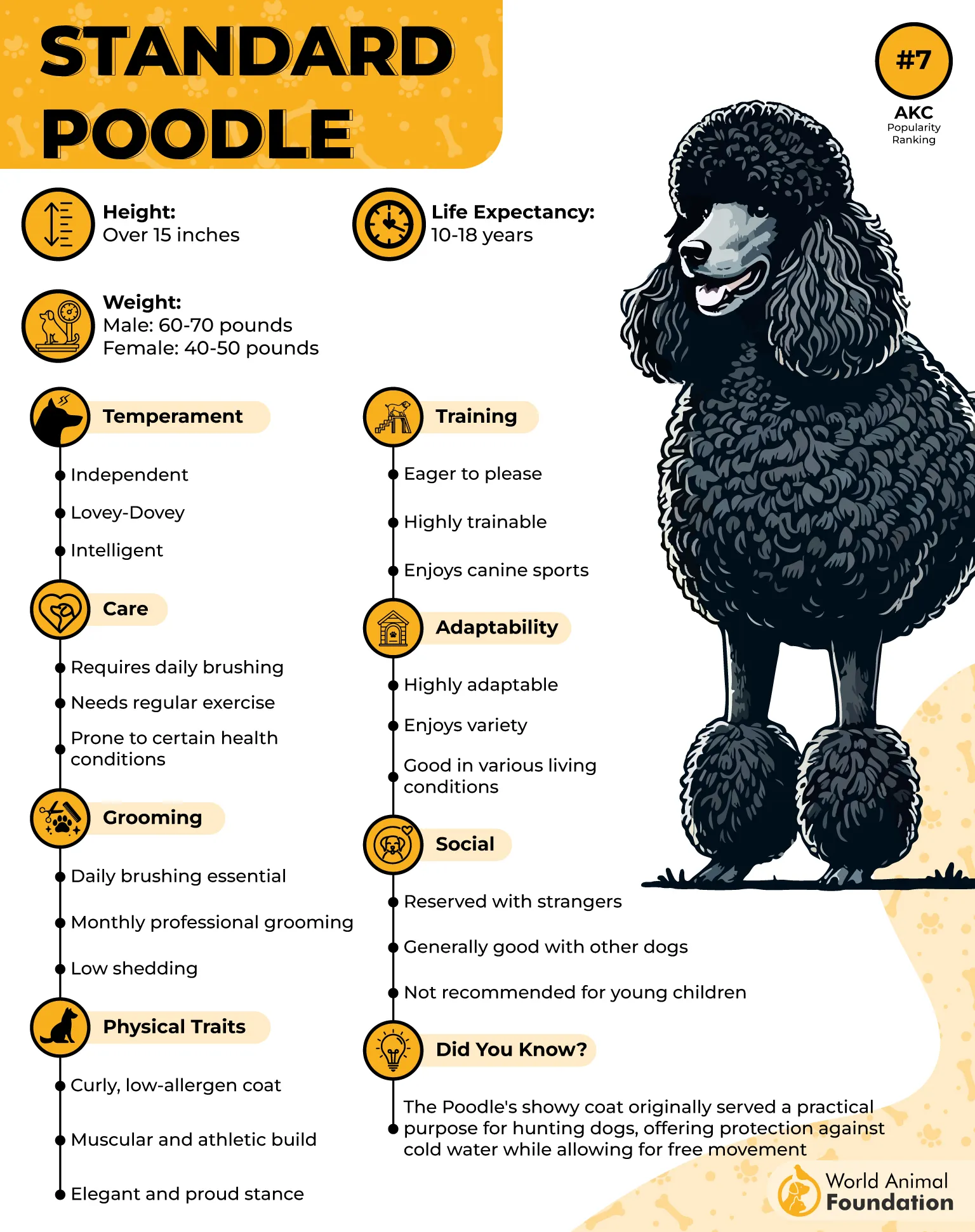
Non-Shedding Coat and Minimal Odor
Their hypoallergenic coat sheds very little, which is helpful in households with sensory sensitivities. This makes grooming more manageable for families and reduces distractions for the autistic child. The coat’s texture is also soft, which some children find soothing.
Known for Consistency Among Breeds
Standard Poodles are often ranked among the best dog breeds for their balance of obedience, patience, and alertness. Unlike many other dogs with unpredictable temperaments, they maintain steady energy levels throughout the day, helping maintain a calm routine.
4. Bernese Mountain Dog
Bernese Mountain Dogs have a grounded presence and steady temperament that can calm overstimulated environments. Their large frame and patient nature make them ideal for tasks that involve deep pressure comfort. They remain centered even when sensory input is high.
Naturally Tolerant and Safe with Children
They’re highly tolerant of touch, unpredictability, and repetitive behaviors — all common with children on the spectrum. This helps avoid accidental reactivity during hands-on interaction. Their ability to patiently wait through transitions also supports routine changes.
Respond Well to Guidance and Purpose
These dogs thrive when given structured roles and consistent routines, making them ideal for trained service roles. They are often chosen as rescue dogs due to their endurance and responsiveness in high-pressure scenarios. Their working style is calm and focused.
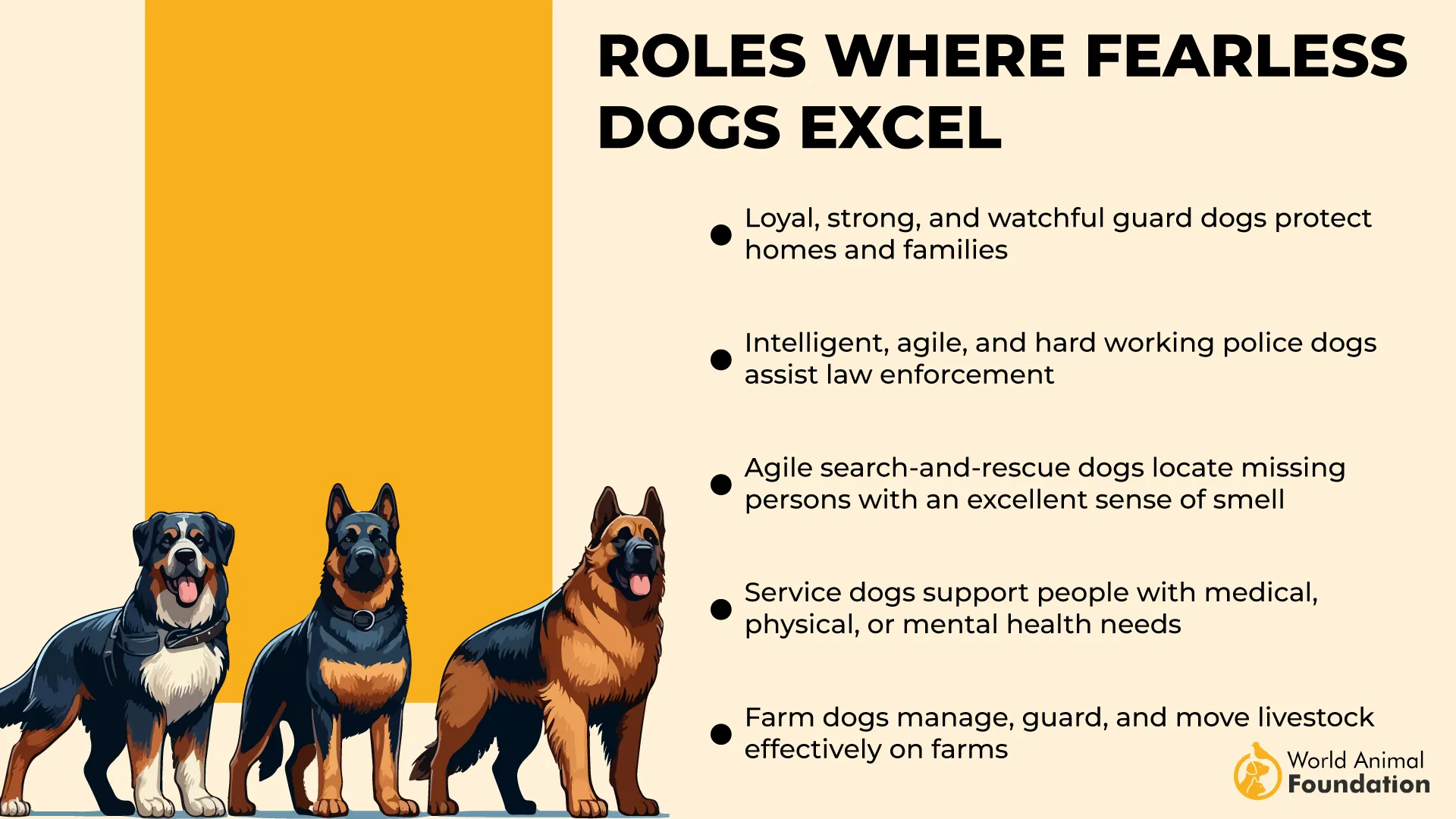
One of the Few That Can Pull Carts
This breed is one of the large service dogs trained to pull small carts — a task that can help children transport sensory or safety gear, as Britannica claims. Among other dog breeds, this physical capability is uniquely reliable and supported by their muscle structure.
5. Newfoundland
Newfoundlands are physically large, but their calm movements and quiet presence make them easy companions in sensitive settings. Their slow-paced walk and soft eyes often make them approachable to autism children. They’re not reactive to sudden noises, which reduces unpredictability.
Patient Temperament for Consistent Support
They are known to tolerate repeated routines without becoming restless or distracted. This makes them helpful in structured daily transitions like school drop-offs or mealtime patterns. Their patience makes them reliable during moments of emotional imbalance.
Emotionally Reassuring in Group Settings
Their consistent energy often helps reduce anxiety during social interaction, especially when environments are overstimulating. They can provide silent support simply by being near, helping children feel more grounded. Their emotional stillness has been recognized by multiple service dog programs.
Widely Known for Water Rescue Instincts
Newfoundlands are naturally inclined to assist in emergencies — they’ve even been trained to pull full-grown adults to safety in water. Their instinct to help is deeply wired, and this sense of responsibility often translates well in homes with great family dogs.
6. Beagle
Beagles are known for their acute sense of smell and awareness of their surroundings. This natural alertness helps them stay focused during specific routines. Their ability to detect emotional or behavioral shifts can support nonverbal communication patterns.
Comfortable in Predictable Settings
They thrive in familiar environments and tend to follow structured patterns once settled. A Beagle’s consistent behavior helps create dependable routines, which are often beneficial for children who rely on daily structure. Repeated exposure improves their responsiveness and emotional stability.
Requires Patience and Structure Early On
While Beagles are friendly and intelligent, they benefit most from proper training introduced at a young age. Their curious personality can lead to distractions, so early consistency is essential. Once trained, they maintain commands reliably in both indoor and outdoor spaces.
Commonly Associated With Deep Loyalty
Beagles form close, lasting bonds and often show an emotional attachment to one person in the family. Their loyalty is a foundation for building trust and comfort. Many handlers describe their companionship as a form of unconditional love that strengthens over time.
7. Great Pyrenees
The Great Pyrenees is instinctively alert to its surroundings and takes its role as a guardian seriously. This watchful nature often creates a dependable sense of protection for families. Their steadiness can help a child with autism feel consistently safe and supported.
Patient With Steady Reactions
They tend to remain composed during sudden changes in environment or mood. This even temperament reduces overstimulation, especially in busy or unpredictable settings. Their slow, measured responses often help regulate the atmosphere around them.
Calm Energy That Grounds Others
These dogs carry themselves with a quiet confidence that projects stability. That kind of calming influence can benefit individuals who feel overwhelmed in unfamiliar routines. Their low reactivity and soft presence make them effective in emotionally sensitive spaces.
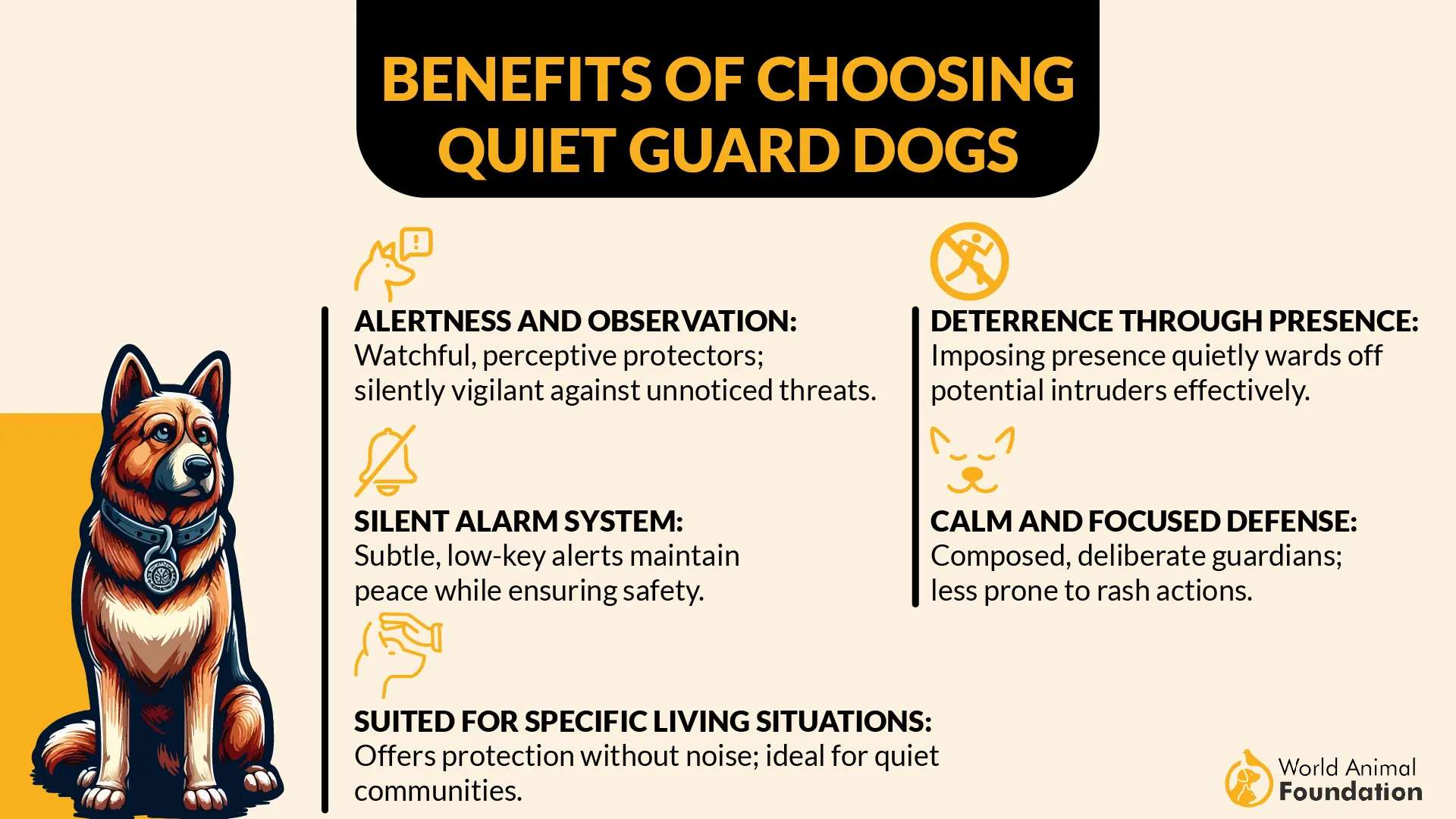
Known for Nighttime Alertness
Great Pyrenees are among the few gentle giants that naturally stay alert through the night, often lying near bedroom doors without instruction. This behavior has been observed across working and companion lines, providing peace of mind for caregivers.
8. German Shepherd
German Shepherds are prized for their ability to learn multi-step commands and follow through with precision. Their quick comprehension allows handlers to build consistent, supportive routines. This clarity is especially helpful during transitions that might otherwise cause sensory overload.
Strong Protective Instinct Without Aggression
They maintain a calm alertness in public spaces and are naturally inclined to guard without being reactive. Their ability to stay focused even in high-distraction settings supports safe outings. Trainers often shape this trait to offer dependable environmental awareness.
Emotionally Tethered to Their Handler
These dogs tend to form deep, focused bonds with their human companions. Over time, they can respond to unspoken behavioral cues and mirror the handler’s emotions through subtle behavior shifts. This connection helps them intervene in moments of rising anxiety.
Trusted Role in Developing Communication
German Shepherds have been used in programs that support the development of social skills in children with autism. Their quiet physical presence and routine-based interactions encourage nonverbal connection. This helps some individuals open up in ways traditional methods may not reach.
9. Saint Bernard
Saint Bernards are naturally calm and respond slowly to stimulation, which prevents escalation in high-sensory environments. Their size adds to their physical grounding, helping children feel secure during transitions. They tolerate noise and activity without showing signs of stress or withdrawal.
Exceptional Tolerance for Close Contact
This breed allows continuous physical contact, such as leaning, hugging, or touch-based reassurance, without discomfort. Their large frame and low reactivity make them a good match for children who use physical contact to self-soothe. Even in extended sessions, their patience doesn’t wear thin.
Reliable in Routine-Based Environments
Saint Bernards learn routines quickly and remember them with minimal correction. Their slower pace allows them to move in sync with an autistic child without causing overwhelm. These dogs can also perform tasks that require calm positioning and passive guidance.
Famous for Alpine Rescue Abilities
Saint Bernards are known globally for their historic role in locating and assisting stranded travelers in the Swiss Alps, as the AKC claims. That same instinct to remain composed and focused under pressure translates well into autism service roles, setting them apart from most breeds.
Conclusion
Autism service dogs do more than follow commands—they respond to changes in mood, reduce self-harming behaviors, and quietly support daily structure. Their role helps build routines, improve social skills, and ease transitions without overstimulation.
With extensive training, many dogs can assist, but the best results often come when the breed aligns with the child’s personality. From classic nanny dogs to calm, focused guardians, each brings something different.
Their deep understanding of human emotions and natural loyalty make them more than helpers—they become loyal companions for life. The bond they share offers peace, confidence, and daily comfort for families navigating autism with love and hope.


